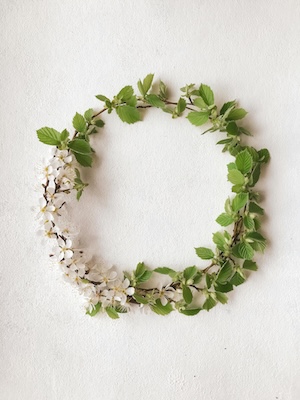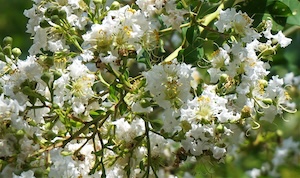The Treasure You Carry
Esther's Hebrew name was Hadassah, meaning myrtle. It may have seemed humble, but it pointed to her powerful destiny. Today, I believe God is highlighting the gifts and callings He has placed within us from birth—even those that appear hidden, humble, or small.
Perhaps there is a gift you carry, something that stirs your passion. Others may have overlooked it, but to God it is valuable. And it remains a unique part of who you are. God wants you to know that this is part of the treasure He has entrusted to you in this season.
"Yet who knows whether you have come to the kingdom for such a time as this?" (Esther 4:14 NKJV)
When God Highlights What Seems Small
For years, I never stopped to reflect on Esther's Hebrew name. Hadassah seemed ordinary and simple, even unremarkable. But one night, the Lord brought it into sharp focus...
I was working hard to complete a blog post, and the Holy Spirit told me to change my course highlight. The worship ministry was a significant part of my life for thirty years, but it's no longer what I'm known for.
That night, the Spirit said, "It is part of the abundance you carry." But I wrestled with it, thinking, "My audience doesn't relate to me in the worship ministry!"
 Later that night, I had a vivid encounter with the Lord. Jesus came to me and placed a crown of foliage on my head.
Later that night, I had a vivid encounter with the Lord. Jesus came to me and placed a crown of foliage on my head.
I had always imagined a spiritual crown with gold and jewels. But this felt light and joyful.
I asked, "Lord, what is this?"
And He said, "This is myrtle."
It was a wonderful gift. It felt personal, and it made me happy. I realized I wanted that humble crown more than one made of gold, silver, or precious jewels. (Photo via Pexels)
Later, I remembered: Esther's Jewish name, her birth name, was Hadassah—Myrtle.(1) The one who bore that humble name was chosen to fulfill a destiny that changed history. Her Persian name was Esther, meaning "star" (Strong's H635).
The Significance of the Myrtle Tree & Esther's Hebrew Name
That moment set me on a journey of discovering the symbolic meaning of the myrtle tree and, with it, the significance of Esther's Hebrew name, Hadassah. I believe this holds significance for all of us right now.
1. Peace and Prosperity
The myrtle tree is a symbol of peace and prosperity in the Bible.
"Instead of the brier shall come up the myrtle tree." (Isaiah 55:13 NKJV)
Where there are thorns and barrenness, God promises fruitfulness and flourishing.
2. Redemption Through Christ
This leads us to redemption. I noticed the thorns are contrasted with myrtle (Isaiah 55:13).
"The soldiers twisted a crown of thorns and put it on His head." (John 19:2 NKJV)
Through Jesus' suffering, He turned our shame into glory, and our "thorns" into a crown of beauty.
 3. Restoration and Rebuilding
3. Restoration and Rebuilding
Zechariah's visions began "among the myrtle trees" (Zechariah 1:11).
From there, God promised: "I will return to Jerusalem with mercy, and there my house will be rebuilt." (Zechariah 1:16 NIV) (Photo via Piqsels)
The myrtle points to God's promise of restoration, rebuilding, and renewal.
4. Hope in the Valleys
Zechariah saw the myrtle growing in the ravines and shaded valleys. Even in the low, hidden places, God reveals His presence and comfort.
"My cities shall again spread out through prosperity; the LORD will again comfort Zion." (Zechariah 1:17 NKJV)
He meets us in the valleys with hope and encouragement.
5. Identity and Calling
The myrtle is a relatively small tree, especially compared with the cedars! It represents God's people, humble yet chosen, just as Esther, whose Hebrew name was Hadassah (Myrtle), was called "for such a time as this" (Esther 4:14).
God chooses the yielded, those small in the world's eyes, the fragrant ones, to bring about His purposes.
6. Dwelling in God's Presence
Myrtle branches were used during the Feast of Tabernacles to build booths (Nehemiah 8:15).
It strikes me that their humble height meant they were within reach—accessible to all!
This feast celebrated God's faithfulness and presence. The myrtle points to His invitation to dwell with Him in joy and worship.
7. Regeneration and New Life
God promises to plant the myrtle as a sign of His creative power: "I will plant in the wilderness the cedar and the acacia tree, the myrtle and the oil tree... that they may see and know... the hand of the LORD has done this" (Isaiah 41:19–20 NKJV). Here, the myrtle speaks of God bringing life, fruitfulness, and glory even in barren places.
God's Invitation Through the Myrtle
 This is the message of Hadassah (Esther) and the myrtle: God crowns the humble, lifts the lowly, and uses them to display His glory.
This is the message of Hadassah (Esther) and the myrtle: God crowns the humble, lifts the lowly, and uses them to display His glory.
Hannah once declared, "He raises the poor from the dust and lifts the beggar from the ash heap, to set them among princes and make them inherit the throne of glory" (1 Samuel 2:8 NKJV). (Photo via Pexels)
So, if you've ever questioned the value of what you bring to the table, those gifts and passions are not small. They are part of the "abundance you carry." And He wants you to know your worship is fragrant to Him.
A Sign of Victory
When the Lord placed a crown of myrtle on my head in that vision, it wasn't only a symbol of humility; it was also a prophetic sign of victory.
In the New Testament, Paul described crowns of foliage, wreaths awarded to athletes who had run and won their race. "They do it to obtain a perishable crown, but we for an imperishable crown" (1 Corinthians 9:25 NKJV).
When Esther's true identity as Hadassah was revealed, she had victory over the enemy of her people (Esther 2:10; 7).
You have a unique race, one He has laid out for you. And victory is your inheritance.
Your Offering Is Fragrant
Today, the Lord is placing His crown of myrtle upon you. It is a crown of humility and beauty. He wants you to know your offering is fragrant to Him, and that you can walk confidently, knowing you are chosen and anointed "for such a time as this."
Note:
1. Hadassah, Strong's H1919 (feminine form of the word for myrtle). Esther's Jewish identity was hidden until a pivotal moment, so her Hebrew name would likely have been unknown to the Persian court.
Whatever you do, don't miss another ELIJAH LIST email! Subscribe at this link: elijahlist.com/subscribe.
Helen Calder
Enliven Ministries
Email: helen@enlivenpublishing.com
Website: www.enlivenpublishing.com
Helen Calder is a prophetic minister and writer, and founder of Enliven Ministries, in the David McCracken Ministries family. Helen has a unique gift of equipping in the areas of prophetic ministry, discernment and prayer. She is known for Enliven Blog, an online prophetic training and mentoring resource that reaches thousands of people globally. Helen and her husband Malcolm are at home in Planetshakers Church, Melbourne, Australia.
To receive more words like this in YOUR inbox, subscribe FREE to the Elijah List at this link: elijahlist.com/subscribe.

Thank you for making the always-free "ElijahStreams" possible. To partner with us, click here.
Your donations truly help us keep these emails free for you. Donate at:
Find us on:
* Facebook click here
* XAPiT click here
